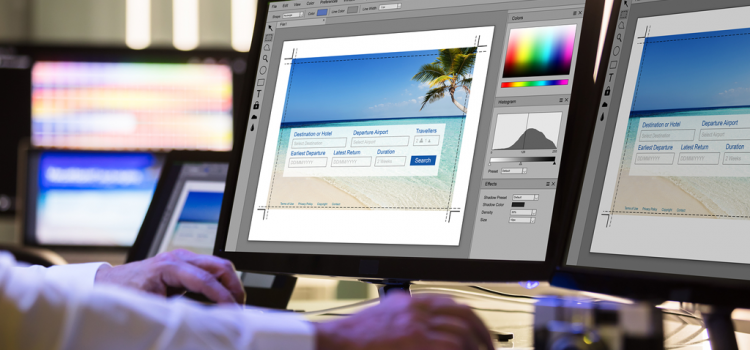Envato Studio
Envato Studio was launched in 2014 after the success of its beta version, Microlancer. It’s not a site that you can just register on; people are recommended or picked, or alternatively you can request that the team consider you by filling in this form.
When someone orders your service, this will be visible within your account and you are alerted via email. Within Your Jobs section, you will see the brief from the buyer along with any supporting material. At this stage, you can chose to ‘Accept’ or ‘Reject’ the job, and while you’re free to do either, it’s worth bearing in mind that this is one of the factors that influences your rating on Envato Studio.
Once you have ‘accepted’ the job, you communicate with your client and share work via the Job Timeline and you should receive an email notification every time there’s an update on your Timeline. It’s up to you to specify prices (although within a range specified by Envato), completion times and amount of included revisions.
Once the buyer is happy with your work, they will ‘Approve’ the job and Envato will release the money into to your earnings account 7 days later and take 30% of your earnings as a fee. Pay-outs are automatic via PayPal or Payoneer once you reach $50, but you have to wait for the 7th of the next month to receive your money.
99Designs
99designs was created and bootstrapped by founders Mark Harbottle and Matt Mickiewicz with the support of Lachlan Donald and Paul Annesley.
99designs is free to sign-up and start freelancing. Rates and rewards vary depending on the type of design work.
The Curation Team reviews all designers when they sign up and regularly to determine their Designer Level. You’ll be paid in three business days (or less once you become a Top Level designer).
There are two ways to find work on 99designs. You can either:
- Work directly with clients, setting your own prices and knowing that the client must pay 99designs upfront.
- Submit your concepts to a Design Contest. There are more than 1,500 open Contests available every day in a variety of categories. You can browse by industry, keyword, prize amounts and schedule to find the perfect fit. You retain full copyright of all unsold work, which you’re free to use any way you want and add to your portfolio.
The amount you earn depends on whether it’s a contest (and the level of the contest) or whether it’s direct work for a client, and while the site doesn’t make potential earnings or fees clear on its public-facing pages, I’m told by a representative that designers earn “around 70%” of what the client pays for a contest.
You can register on 99designs here.
Creative Market
Creative Market was launched in 2012 and works in a slightly different way to other marketplaces. On Creative Market, you open a ‘Shop’ to display your creations to over 5 million members. There’s no exclusivity lock-in and you set (and change) your prices, earning 70% on each sale. Creative Market ensures your products are delivered safely and securely to your customers.
The platform also allows you to track stats, communicate with your customers and manage support via a simple messaging systems.
You can open a shop on Creative Market here.
DesignCrowd
DesignCrowd was started up by Alex Lynch in 2007. Designers can submit a portfolio that is advertised to customers, and as you begin to move up the list of top designers you will receive invites/participation payments from customers.
You can earn money by either:
- Entering design contests and receiving participation money and monetary awards for being placed in the contest. When you find a project you are interested in, you can click on the ‘Submit Your Design’ As you submit, clients will often provide feedback on your work or ask for revisions to be made from your designs, and you’ll be simultaneously building your portfolio.
- Bidding on and winning freelance jobs listed on the site.
DesignCrowd charges a standard 15% commission on all your project earnings.
You can register on DesignCrowd here.
Have you used any of theses marketplaces yourself? How user-friendly did you find them—and were they a good source of income?







